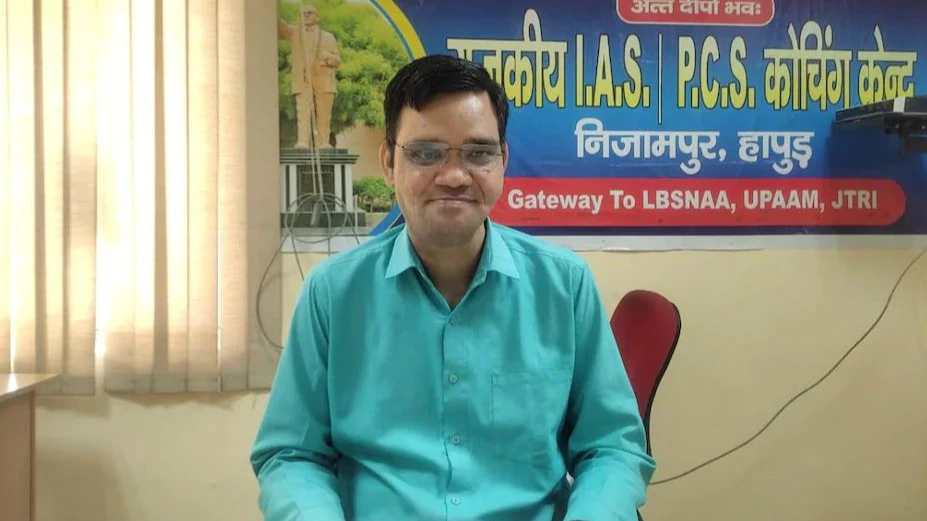In India’s sprawling bureaucracy, where silence often shields corruption, one officer has chosen a different path — and paid a heavy price. IAS officer Rinku Singh Rahi, who once survived seven bullets for exposing a Rs 100-crore welfare scam, is again in the spotlight after a symbolic act of humility went viral and led to his abrupt transfer.
A Whistleblower’s Ordeal
Rahi’s confrontation with the system began in 2009 as a young PCS officer in Muzaffarnagar. He exposed irregularities in welfare schemes, filed RTIs, and refused to bend to pressure. His defiance provoked a brutal response: gunmen attacked him during a morning badminton game, firing seven rounds that cost him an eye and left his face scarred. His recovery was slow, but his resolve hardened.
Second Chances at Forty
Determined not to be defined by violence or sidelining, Rahi set his sights higher. After years of preparation, he cleared the UPSC Civil Services Examination in 2022 under the physically challenged quota, securing an All-India Rank of 683. At the age of 40, he entered the IAS — a rare second act that underscored his resilience.
Sit-Ups and a Sudden Transfer
In his most recent posting as SDM of Powayan in Shahjahanpur, Rahi found himself facing a protest over poor hygiene and misconduct in the tehsil office. Rather than scolding staff, he chose symbolism: holding his ears, he performed sit-ups before the gathered crowd, declaring that accountability began with him. The gesture went viral on social media — and within 36 hours, he was transferred to the Revenue Council in Lucknow.
“I Won’t Stop Doing What’s Right”
Despite the setback, Rahi remains undeterred. In his short tenure he had already initiated reforms, from halting questionable land auctions to creating WhatsApp groups for citizen grievances. His transfer, he says, is just another hurdle. “I’ll work wherever I am posted,” he told reporters. “But I will not tolerate wrongdoing.”
Rinku Singh Rahi’s journey — from surviving bullets to cracking UPSC at 40 and now challenging entrenched practices — is a story of extraordinary resilience. In a system that often punishes dissent, he continues to stand as a rare symbol of integrity.


